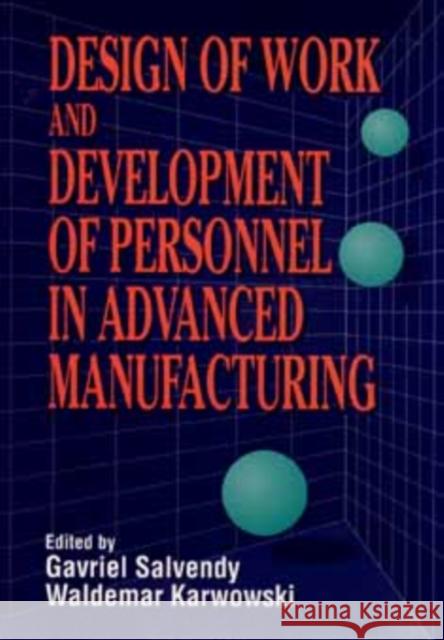Design of Work and Development of Personnel in Advanced Manufacturing » książka
Design of Work and Development of Personnel in Advanced Manufacturing
ISBN-13: 9780471594475 / Angielski / Twarda / 1994 / 578 str.
This important work was designed as a companion volume to Organization and Management of Advanced Manufacturing. Together, these two volumes cover the spectrum of human factors issues relevant to the design, operation, and management of advanced manufacturing technology. Today, as manufacturing enterprises become more and more computerized, it is clear that their economic success will depend, to a large degree, on the symbiosis of social, technical, organizational and management, and ecological design efforts. This book reflects three major trends that have developed in this new era of manufacturing: the rapid spread of manufacturing capabilities worldwide...the emergence of advanced manufacturing technologies...and growing evidence that appropriate changes in traditional management and labor practices and organizational structures are needed. Design of Work and Development of Personnel in Advanced Manufacturing explains the urgent need for explicit philosophical acceptance of the vital importance of human work design and development of human resources in advanced manufacturing. Design of Work and Development of Personnel in Advanced Manufacturing presents a framework of problems, issues, and solutions which are relevant to the design of work and effective development of personnel in advanced manufacturing systems. It addresses problems that are experienced worldwide in the industry. The book covers problems of work design and analysis in advanced manufacturing - specifically such ergonomics design issues as cognitive task requirements, human supervisory control, development of human skill, educational requirements, technical choice from a technological perspective, and the dynamics ofhuman performance variability, including fatigue and boredom effects in automated systems. The book discusses the various problems of personnel development as they arise in the context of computer-aided decision support for human-based activity domains as manufacturing process planning, scheduling, maintenance, reliability, inspection, and product quality. Finally, the book discusses future trends in computer-integrated rather than computer-interfaced manufacturing technology, and related human factors issues. Design of Work and Development of Personnel in Advanced Manufacturing will prove to be invaluable to industrial and production engineers, plant managers, human resource personnel, researchers, and students.











